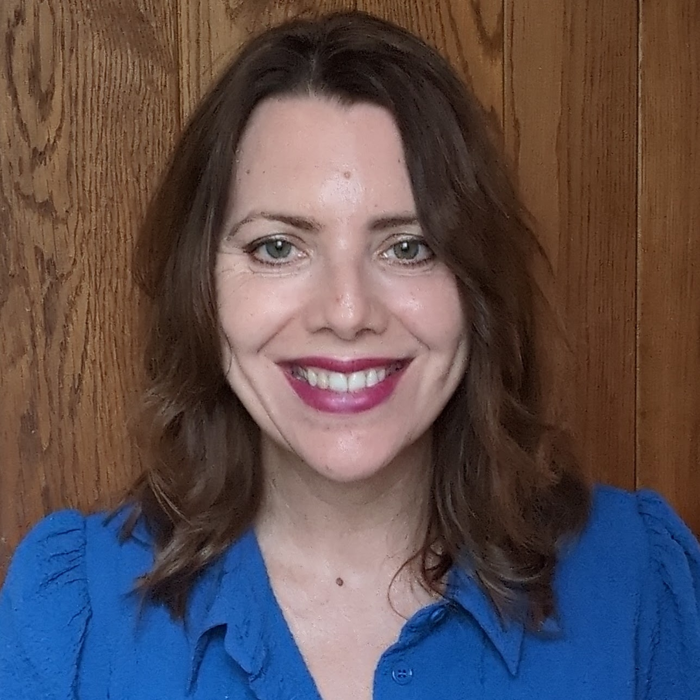The Estill Voice Model©: Research behind Jo Estill’s paradigm shift in voice training and treatment
Tuesday 17th September 2024, 5:00 PM - 7:00 PM (London Time)
For over 40 years, the Estill Voice Model (EVM) has defined voice quality according to the physiologic adjustments that correlate to acoustic and auditory-perceptual correlates. In other words, movement of the vocal anatomy that you can FEEL produces a characteristic acoustic soundwave and spectral shape that you can SEE that results in a unique voice timbre or quality that you can HEAR. EVM addresses the daunting degrees of freedom issue in voice motor control by isolating the Craft of voice production from the Artistry and Performance Metaphysics. The EVM proposes an integrated implicit-explicit approach for voice motor learning that flows through all training and therapy protocols. Implicit instructions include auditory-perceptual prompts (e.g., quack like a duck to produce “twang”) and explicit prompts train physiologic conditions of the vocal anatomy correlated with the voice quality (e.g., narrow your aryepiglottic sphincter to produce “twang”). Estill Voice Training® exercises informed by the EVM address power, source and filter properties of voice production, and include: narrowing the aryepiglottic sphincter for “ring” in opera & belt and for increased power in hypofunctional voices; and varying vocal fold mass for register shifts and optimizing contact for hyperfunctional voices. Speakers, singers, and voice patients learn to feel, see, and hear the voice via multiple feedback modes including hand gestures, magnitude estimation of bodily-kinesthetic effort, visual acoustic cues in the real-time spectral analysis program, Estill Voiceprint™. This presentation will highlight scientific research and clinical evidence for using Estill Voice Training® exercises to train and treat all voices, from the novice speaker to the expert performer. Learn about the evidence supporting a new way to Feel, See, and Hear the Voice.
🏷️ Price £30 (UK VAT inclusive)
🎥 Recording automatically sent to all who book (even if you cannot attend live)
▶️ Rewatch as many times as you like
📜 Certificate of attendance available
Kim Steinhauer
Kimberly Steinhauer, Ph.D.,has devoted her entire career to the voice—in song, education, and research. As a singer, she has been employed in a variety of musical venues ranging from pop, musical theater, and opera to sacred music.

Attend this course for as little as £22 as part of the Voice Professional Training CPD Award Scheme.
Learn MoreSorry, this is an archived short course...
We have plenty of upcoming short courses coming soon. See details of some of them below or look at the full list of short courses.

Tuesday 13th January 2026
5:00 PM - 6:30 PM
Tuesday 20th January 2026
5:00 PM - 6:30 PM
Tuesday 27th January 2026
5:00 PM - 6:30 PM
Tuesday 3rd February 2026
5:00 PM - 6:30 PM
Tuesday 10th February 2026
5:00 PM - 6:30 PM
(London Time)
Introduction to Postgraduate Academic Skills - Join Live!

Debbie Winter
Are you ready to elevate your academic journey? Hosted by our very own Debbie Winter, join our comprehensive Introduction to Academic Skills course, designed to equip you with essential tools and strategies for success in higher education. Perfect for bridging the gap between undergraduate and postgraduate study, this course offers a pathway to our full MA for students without an existing degree. We offer both live, interactive sessions and standalone, pre-recorded content.

Thursday 15th January 2026
5:00 PM - 7:00 PM
Thursday 22nd January 2026
5:00 PM - 7:00 PM
Thursday 29th January 2026
5:00 PM - 7:00 PM
Thursday 5th February 2026
5:00 PM - 7:00 PM
Thursday 12th February 2026
5:00 PM - 7:00 PM
(London Time)
Trauma-Sensitive Voice Professional Certificate with Dr Elisa Monti

Dr Elisa Monti
Updated for 2026, this five-part certificate course is designed to help participants learn the theory and practice of trauma-sensitive approaches. The concepts and activities included are tailored to meet the needs of voice specialists who want to acquire more specific tools to navigate the space with their students and colleagues.

Monday 9th February 2026
5:00 PM - 7:00 PM
(London Time)
Certificate in Applied Voice Pedagogy with Adam Roberts

Adam Roberts
Spring Immersive - live and interactive learning! This 12-week online programme is designed for voice professionals committed to deepening applied voice pedagogy skills and advancing professional practice. The course offers a rich environment to reflect on your teaching philosophy and develop applied pedagogical techniques. It is ideal for voice teachers, coaches, therapists, and performers seeking to bridge foundational knowledge with practical, student-centered applications.
